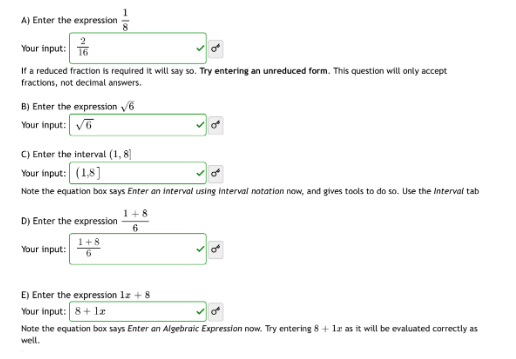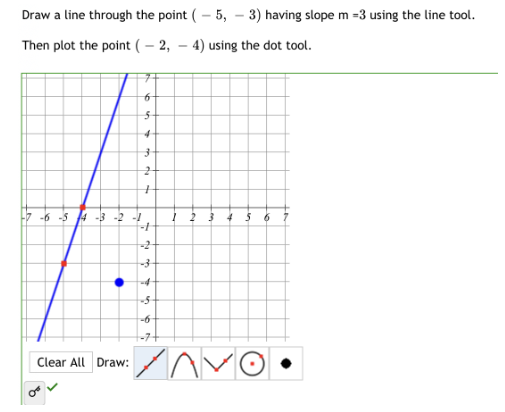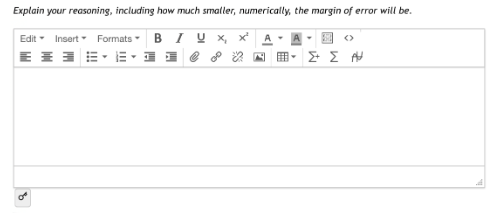An Introduction to MyOpenMath
Digital Skills Services
Last Update 7 months ago
Register for an account to use MyOpenMath - link to the request form.
Teaching Statistics with Technology resource material by Cameron Redsell-Montgmerie
MyOpenMath is a free open source platform for learning and assessment. As the name implies, MyOpenMath was originally designed for math content, and shines where mathematics are needed in the question text and/or the final answer, but can be used for any type of assessment.
Question coding is straight forward and supported by extensive documentation and an open source community. As well, large question banks exist covering much of mathematics from addition through differential calculus; statistics from calculating a mean and identifying boxplots to 2-way ANOVA and regression; physics statics and dynamics; and more recently chemistry. Questions can be algorithmically generated ensuring each attempt is unique. Instructors can also modify code and re-grade students if a mistake or exception is found, allowing instructors the confidence to experiment with new and innovative assessment ideas.
The platform is extremely browser and mobile friendly, allowing students to complete assessments with the equipment they have available. If enabled, students can even resume their work after a browser, or power, failure, and even switch devices if necessary.
Most standard options exist in MyOpenMath including: date restrictions of assignments (from within the LMS), grade book sync, requiring prerequisites, and questions banks. But there is an extensive catalog of innovative approaches, assessment styles, and question types available in MyOpenMath.LatePasses
LatePasses
LatePasses are a novel approach to allowing students to manage their own due dates. Each student is assigned a fixed number of LatePasses at the beginning of the semester, and each LatePass extends the due date of an assignment, where they are permitted, by a fixed amount of time, typically 24 hrs. Originally designed to only allow students to extend due dates before the time expires, they can also be allowed after the due date. This means students can manage extensions themselves, and use their limited pool of LatePasses wisely.

Assessment Types
There are two main types of assessment inside MyOpenMath: quiz and homework. These can be presented to students one at a time, all at once, inside a live poll or even part of a video. With extensive customization these can be extended to accommodate most assignment styles.
Quizzes
Quizzes work like the default in most LMS like Canvas, D2L, Blackboard etc. Students can attempt each quiz, with one attempt per problem, and the instructor can limit the number of attempts and/or add a penalty for the quiz. Quizzes can also be timed and have solutions and answers hidden until after an assessment is complete. This style works well for tests and weekly quizzes, especially with the addition of the Add Work feature, where students can upload their rough work directly into each question as they go.
Homework
Homework style assessments work very similarly to how a student might approach their own homework. Each homework assessment allows individual questions to be regenerated, called versions, without restarting the entire assignment, but can also allow multiple attempts, called tries, of the same setup of a question. This allows students the ability to get instant feedback on a question, including whether it is correct, hints and other guides, then quickly correct simple typos or technical errors. Again, penalties can be applied to each try as well as each version based on the instructors specifications.
Question Types
There is an extensive variety to the types of questions that can be constructed in MyOpenMath, with the main ones being:
- Mathematics: Students can answer questions that require simple numerical answers such as integers and decimals, mathematical equations including exponents, fractions, complex numbers and trigonometry, interval notation, matrices, and even equations and functions that contain variables and inequalities. Extensive support for tolerances, units, and scientific notation can also be used to ensure students are marked correctly.

- Graphing: Questions can be asked where students must draw points, lines including vectors, and various curves including circles to hyperbolas. Grading can be exact or based on closeness to the correct answer.

- Multiple Choice and Matching: Similar to those offered in most LMS, MyOpenMath can present multiple choice and matching questions. Various presentation, randomization, and grading styles can also be applied.
- Text box: Although primarily requiring hand marking by the professor, short text boxes can be computer graded using an extensive library of functions like case sensitivity, Levenshtein distance and regular expressions (regex).

- File Upload: As well as adding work in the Add Work essay box below questions students can upload files directly to assessment questions. These can only be hand graded, but the instructor grading view has extensive support for common file types including PDF and word, allowing most files to be viewed directly in the grading view.
This is by no means an exhaustive list of what can be done with MyOpenMath questions. Question types such as conditional can be used to design complex systems requiring students to complete specific tasks, and larger multipart questions can combine multiple answer styles within the same question. Each answer can also incorporate previous student responses to allow part marks and/or guidance based on a prior mistake by the student.
How does MyOpenMath fit in my course?
Most textbook “packages” will consist of a textbook, an online assessment system, and a set of instructor resources. MyOpenMath fills the assessment system piece. Many Open Education Resource (OER) have been paired with MyOpenMath including those in OpenStax, OpenIntro and LibreText platforms. These fill the textbook piece and in many cases have extensive Instructor resources like lecture notes, solution books and paper test banks. The open source community inside of MyOpenMath and many of the OER platforms also serves as instructor resources in terms of support.
Give it a try. Signing up is free, of course, and you’ll get access to a wonderful community Support Course, and a full Training Course to get you started.

